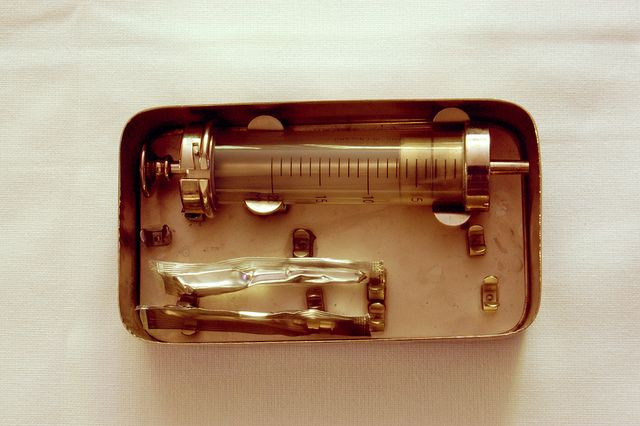Human Guinea Pigs In East Germany? Hospital Investigating Drug Trials That Used 50,000 Unknowing Patients

Former East Germany hospitals are being investigated for human guinea pig clinical trials that involved testing new drugs on nearly 50,000 people during the 1980s, reported Der Spiegel.
The health ministry at the time permitted Western pharmaceutical companies to use human medical guinea pigs for trials in exchange for money. According to health ministry records called Stasi secret police files, approximately 430,000 euros ($520,000) were given by 50 companies that performed 165 tests without patient consent.
Der Spiegel reported that Bayer, Schering, Hoechst and Sandoz, currently a sector of Novartis, were involved in these trials. The companies were from West Germany, Switzerland, and even the United States. They previously broke the scandal in December, but now it seems the number of patients involved in these trials have grown.
"It shows that the German Democratic Republic, wanting to get foreign currency, was not considerate of the patients. And that the Ministry of State Security, that is the Stasi, monitored this trade that brought in foreign currency, and made sure that no disturbing influences prevented that business," Roland Jahn, the federal commissioner for the Stasi archives, told Euronews.
The Charite Hospital, a top hospital in Berlin, announced in a statement that it would be keeping old patient medical records to probe an investigation and that "as a first step, Charite has stopped the usual shredding of decades-old files after expiry of the storage period. This is in order to reconstruct the course of action in particular cases as fully as possible."
Between 1945 and 1990, East Germany was ruled by the Communist party, and funneling money from Western drug companies was needed to meet the health care needs.
Leaders of the Charite medical history institute said through the investigation, they'll be examining patient consent and the number of side effects patients reported, and compare these results to how Western companies normally performed their clinical trials back then.
Novartis and Bayer spokesmen explained in a statement that the trials, to their awareness, abided by ethical and legal principles, the Associated Press reported.
Published by Medicaldaily.com



























